Vaccine Day 2013
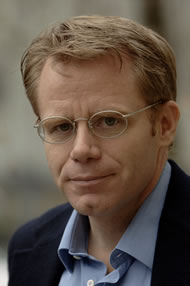
Friday September 27th, 2013
Dr. Bruce Aylward was the keynote speaker for the sixth annual Vaccine Day event at the Johns Hopkins Bloomberg School of Public Health on Friday September 27, 2013. Dr. Aylward, an alumnus of our School, is the Assistant Director-General for Polio, Emergencies and Country Collaboration at the World Health Organization, and spoke about global efforts to end polio. The talk by Dr. Aylward was followed by a faculty and student panel discussion, a poster presentation, and a reception.
Biography: Bruce Aylward, MD, MPH
Bruce Aylward is the Assistant Director-General for the World Health Organization’s Polio, Emergencies and Country Collaboration program, which brings together WHO’s work in polio eradication, humanitarian response and country cooperation.|
A Canadian physician and epidemiologist, Dr. Aylward is the author of some 100 peer-reviewed scientific articles as well as a number of book chapters on immunization and disease eradication. He joined the WHO in 1992 as a medical officer with the Expanded Programme on Immunization, working primarily in the areas of measles, neonatal tetanus and hepatitis vaccination, and injection safety. He worked for seven years with national immunization programmes at the field level in the Middle East, western Pacific, Europe, North Africa and central and Southeast Asia, before coming to WHO headquarters in Geneva.
Since 1998, Dr. Aylward has been responsible for the oversight and coordination of all polio eradication activities across WHO’s regional offices and the Global Polio Eradication Initiative partnership. He oversaw and managed the scale-up of the Global Polio Eradication Initiative, which since 1997 has expanded to operate in every polio-affected country in the world and has reduced the number of polio-endemic countries to three. Dr. Aylward received his medical training in Canada at the Memorial University of Newfoundland and completed specialist training in internal medicine in Vancouver, British Columbia, where he focused on infectious diseases, particularly HIV/AIDS. He then trained at the London School of Hygiene & Tropical Medicine and the Johns Hopkins Bloomberg School of Public Health, where he received a certificate in Tropical Medicine and an MPH in 1992, with a focus on vaccine-preventable diseases. During the course of his medical training, Dr. Aylward travelled and worked in countries throughout South America, Africa and Asia.
2013 Vaccine Day Faculty and Student Panelists:
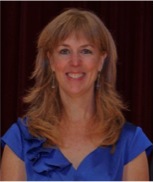
Katherine O’Brien, MD, MPH is a Professor in the Department of International Health with a joint appointment in Epidemiology and in the Department of Pediatrics in the School of Medicine. She is a pediatric infectious disease physician, an epidemiologist and a vaccinologist who earned her M.D. at McGill University and her MPH at Johns Hopkins University. Following residency and fellowship at Johns Hopkins she joined the bacterial Respiratory Diseases Branch at the Centers for Disease Control and Prevention (CDC) as an Epidemic Intelligence Officer. Dr. O’Brien returned to Johns Hopkins in 1998 to join the Center for American Indian Health (CAIH) where she leads the Center’s Infectious Disease Prevention group conducting clinical trials of vaccines for diseases of importance to American Indian tribes. She now also serves as the Executive Director of the International Vaccine Access Center (IVAC) at JHSPH, a multidisciplinary Center working across the domains of evidence, policy and access for vaccines.
Her research domestically and internationally has focused on vaccine preventable childhood illnesses including epidemiologic and vaccine studies of pneumococcal disease; rotavirus; Haemophilus influenzae; respiratory syncytial virus and influenza in resource-poor settings. Dr. O’Brien has conducted numerous phase III field trials (among American Indians) and carried out a wide range of epidemiology studies to support those trials. Her work also focuses on harnessing evidence from the research setting to formulate and inform global policy decision making regarding vaccine access in resource poor settings. Her primary research focus is on nasopharyngeal colonization, disease rates, serotype distribution, and prevention of Streptococcus pneumoniae, among children and adults both domestically and internationally, including the evaluation and introduction of pneumococcal vaccines in the developing world. She has served on numerous WHO expert committees and provided technical support for WHO vaccine policy decision making through specific studies and analyses of pneumococcal disease burden, serotype distribution, and vaccine trial procedures. She is a member of the World Health Organization Strategic Advisory Group of Experts on Immunization (SAGE), the global policy decision-making body for vaccines. She was awarded the Sabin Vaccine Institute Young Investigators Award and the Presidents Early Career Award in Science and Engineering (PECASE).
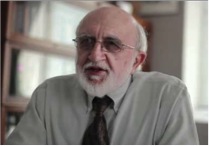
Neal Halsey, MD: Dr. Halsey is a Professor in the Department of International Health with a joint appointment in the Department of Pediatrics in the School of Medicine (SOM). He is board certified in Pediatrics and Pediatric Infectious Diseases. He served as an EIS officer and medical epidemiologist at CDC in the Immunization Division prior to beginning his career in academia. He has over 33 years of academic teaching experience beginning in the Department of Tropical Medicine at Tulane University before joining the faculty at Johns Hopkins in 1985. He provided the core vaccine lectures for the American Academy of Pediatrics board review course taught every two years for 12 years. He established The Institute for Vaccine Safety at JHSPH in 1997. His primary research and teaching efforts are focused on the prevention of infectious diseases with the safest vaccines possible. He has published over 220 scientific articles in peer-reviewed journals on vaccines and vaccine safety and he has conducted or participated in epidemiological studies of vaccines-preventable diseases and phase I, II, and III trials of hepatitis A, hepatitis B, live and inactivated poliomyelitis, pertussis, Haemophilus influenzae type B, tetanus, Lyme disease, rotavirus, Argentina Hemorrhagic Fever, human papillomavirus (HPV) and influenza virus vaccines.
Dr. Halsey has contributed presentations for the Institute of Medicine Vaccine Safety committees and he contributes to Public Health Service reviews of individual vaccine safety issues. He has provided expert testimony and reviews of legal claims involving the National Vaccine Injury Compensation Program, vaccine manufacturers, and the Food and Drug Administration. He has served on advisory groups that make vaccine recommendations for the World Health Organization, CDC, and the American Academy of Pediatrics and he participated in the development of more than 90 guidelines for the use of vaccines.
The control of measles has been a particular interest as has been the ongoing poliomyelitis global eradication efforts. His interest in vaccine safety stems from experience with vaccine-associated paralytic poliomyelitis, increased mortality after high-titer measles vaccines, and differences in safety of acellular and whole cell pertussis vaccines. Ongoing research includes issues related to the safety of immunization (hypersensitivity reactions, cytokine related adverse events in the first 24 hours after vaccines and the genetic basis for adverse responses to vaccines) and the possible effect of influenza vaccine on hormones. Dr. Halsey has conducted vaccine related research projects in 10 countries, including recent studies in Guatemala, Mali, and Bangladesh as wellas vaccine safety investigations in the U.S.
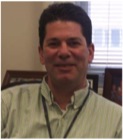
Daniel Salmon, PhD, MPH is an Associate Professor in the Department of International Health with primary research and practice interests in optimizing the prevention of childhood infectious diseases through the use of vaccines. He is the Deputy Director of the JHSPH Institute for Vaccine Safety (IVS). He has focused on post-licensure vaccine safety and the factors associated with parental decisions to vaccinate, or not vaccinate, their children. He has conducted studies examining the rates of vaccine refusal, the reasons why parents refuse vaccines, the impact of health care providers and local and state policies on vaccine refusal and the individual and community risks of unvaccinated children. Other interests and research include the financing and delivery of vaccines, vaccine risk communication, and issues surrounding mandatory immunizations. Dr. Salmon is a 2003 PhD graduate of the Bloomberg School of Public and a 1996 graduate of Emory University Rollins School of Public Health. In 2007, he became the Director of Vaccine Safety at the National Vaccine Program Office (NVPO) in Washington DC, where he coordinated, evaluated and provided leadership for federal vaccine safety programs. In 2012 Dr. Salmon returned to JHSPH as an Associate Professor.
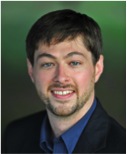
Daniel Erchick, MPH
Dan Erchick is a current PhD student in the JHSPH Department of International Health. Daniel completed his undergrad at Rice University and MPH at JHSPH in 2012 while working with the Policy, Advocacy & Communications and Nigeria teams at the International Vaccine Access Center (IVAC). Dan serves on the Board of Directors of the Maryland Disability Law Center, the designated Protection and Advocacy agency for the state of Maryland and nonprofit legal services organization mandated to advance the civil rights of persons with disabilities. His research interests focus on the epidemiology of infectious diseases, vaccine delivery, and polio eradication.
Faculty and Student Poster Presentation:
Twenty-five posters were submitted for the Vaccine Day 2013 Poster Session, including 15 student posters, and representing 4 work from JHSPH departments and several vaccine research institutes. Awards were given for the best student posters, judged by JHSPH faculty.
First Place: Jessica E. Atwell, MPH "Nonmedical Vaccine Exemptions and Pertussis in California, 2010"
Jessica E. Atwell, MPH, Josh Van Otterloo, MSPH, Jennifer Zipprich, PhD, Kathleen Winter, MPH, Kathleen Harriman, PhD, MPH, RN, Daniel A. Salmon, PhD, Neal A. Halsey, MD, and Saad B. Omer, MBBS, MPH, PhD
BACKGROUND: In 2010, 9120 cases of pertussis were reported in California, more than any year since 1947. Although this resurgence has been widely attributed to waning immunity of the acellular vaccine, the role of vaccine refusal has not been explored in the published literature. Many factors likely contributed to the outbreak, including the cyclical nature of pertussis, improved diagnosis, and waning immunity; however, it is important to understand if clustering of unvaccinated individuals also played a role.
METHODS: We analyzed nonmedical exemptions (NMEs) for children entering kindergarten from 2005 through 2010 and pertussis cases with onset in 2010 in California to determine if NMEs increased in that period, if children obtaining NMEs clustered spatially, if pertussis cases clustered spatially and temporally, and if there was statistically significant overlap between clusters of NMEs and cases.
RESULTS: Kulldorff’s scan statistics identified 39 statistically significant clusters of high NME rates and 2 statistically significant clusters of pertussis cases in this time period. Census tracts within an exemptions cluster were 2.5 times more likely to be in a pertussis cluster (odds ratio = 2.47, 95% confidence interval: 2.22–2.75). More cases occurred within as compared with outside exemptions clusters (incident rate ratios = 1.20, 95% confidence interval: 1.10–1.30). The association remained significant after adjustment for demographic factors. NMEs clustered spatially and were associated with clusters of pertussis cases.
CONCLUSIONS: Our data suggest clustering of NMEs may have been one of several factors in the 2010 California pertussis resurgence.
The Vaccine Day 2013 Video
Dr. Aylward's TED2011 Talk
"How We'll Stop Polio For Good"
Please contact jhvi@jhsph.edu with any questions.
